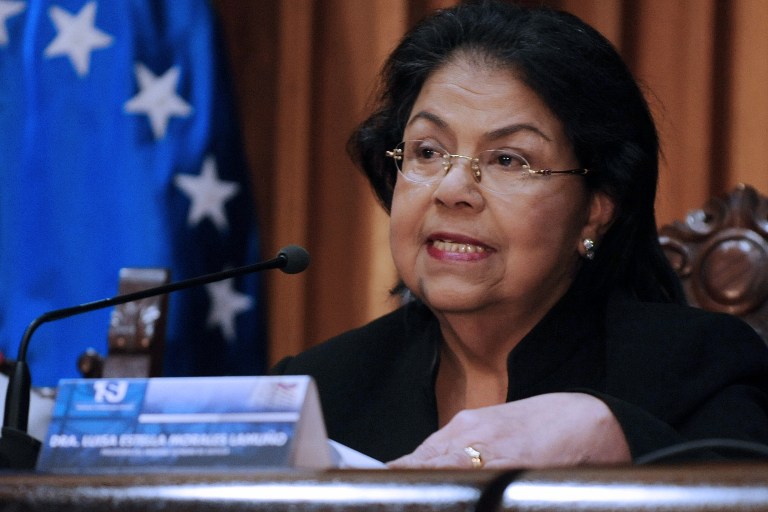SUMMARY
This is AI generated summarization, which may have errors. For context, always refer to the full article.

CARACAS, Venezuela – Venezuela’s top court cleared cancer-stricken President Hugo Chavez Wednesday, January 9, to indefinitely postpone his re-inauguration but the opposition said it did not resolve the uncertainties facing the country.
Henrique Capriles, who ran unsuccessfully against Chavez in October presidential elections, accepted the unanimous ruling by the Supreme Court as “binding.”
“Now the ruling has been handed down. There is an interpretation by the Supreme Court,” Capriles said before taking aim at Vice President Nicolas Maduro, Chavez’s handpicked successor.
“The excuses are over, Mr Maduro. Now it falls to you to assume the responsibility of the office and to govern.”
His comments signaled a shift away from what has been a major constitutional battle over the government’s decision to indefinitely postpone the January 10 inauguration and keep the current administration in place until Chavez is well enough to take the oath.
Maduro, meanwhile, highlighted the expressions of support he had received from other leaders, including Brazilian President Dilma Rousseff, as Chavez’s followers were exhorted to turn out at a huge show of support for the ailing leader.
Leaders of other leftist Latin American governments and Caribbean states that receive cheap Venezuelan oil began arriving in Caracas to pay tribute to the ailing leader on what would have been his inauguration of another six-year term.
Officials said that in Chavez’s absence, the event would take the form of a symbolic swearing-in of the Venezuelan people.
Chavez, who is recovering from a fourth round of cancer surgery in Havana, also will be marking a full month since he has been seen in public, the longest stretch of his 14 years in power.
The government has said that he is recovering from complications from surgery, most recently a severe pulmonary infection that had resulted in a “respiratory insufficiency.”
Information Minister Ernesto Villegas said late Monday, January 7, that Chavez’s medical condition was unchanged.
After days of suspense, the government confirmed Tuesday that Chavez was too sick to return to Caracas for his scheduled swearing-in and would take the oath of office at a later date before the Supreme Court.
With a show of hands, the Chavez-controlled assembly approved the open-ended absence of the president, who has dominated the country personally and politically since coming to power in 1999.
The panel of seven magistrates — all appointed by the Chavez-controlled National Assembly — unanimously ruled Wednesday that the delay was constitutional.
Additionally, it said the officials of the current administration “will continue fully exercising their functions under the principle of administrative continuity.”
Supreme Court president Luisa Estella Morales, who read out the decision, also ruled out convening a medical board to assess the health of the president. Throughout his illness, first detected in June 2011, Chavez has refused to relinquish the powers of the presidency, even when leaving for Cuba for his latest surgery.
The charter says new elections must be held within 30 days if the president-elect or president dies or is permanently incapacitated either before he takes office or in the first four years of his six-year term.
Uruguay’s President Jose Mujica was the first foreign president to arrive here for Thursday’s show of support.
“We have to offer all possible support for a way out at a moment of tension that is the least disruptive for the future of the Venezuelan people,” Mujica told Uruguay’s public television.
“From the point of view of the popular decision, I don’t think there are any doubts. And for that reason, it seems to me they have to find an institutional way out,” said Mujica.
Bolivian President Evo Morales, Nicaraguan President Daniel Ortega, Haitian Prime Minister Laurent Lamothe, and Foreign Ministers Hector Timerman of Argentina and Ricardo Patino of Ecuador also have confirmed their attendance.
In Ecuador, President Rafael Correa said the Venezuelan leader’s absence would be a “blow” for Latin America.
Capriles, who had urged Latin leaders not to attend what was a political event, said he was pleased that most presidents from the region were not coming. – Rappler.com
Add a comment
How does this make you feel?
There are no comments yet. Add your comment to start the conversation.